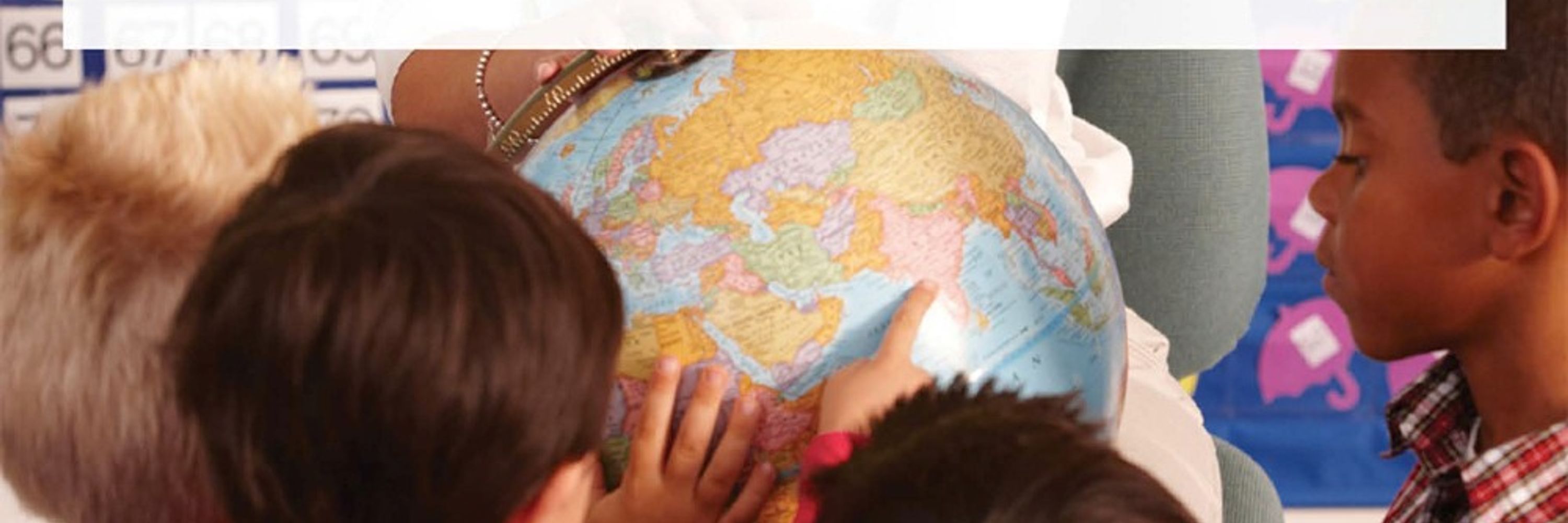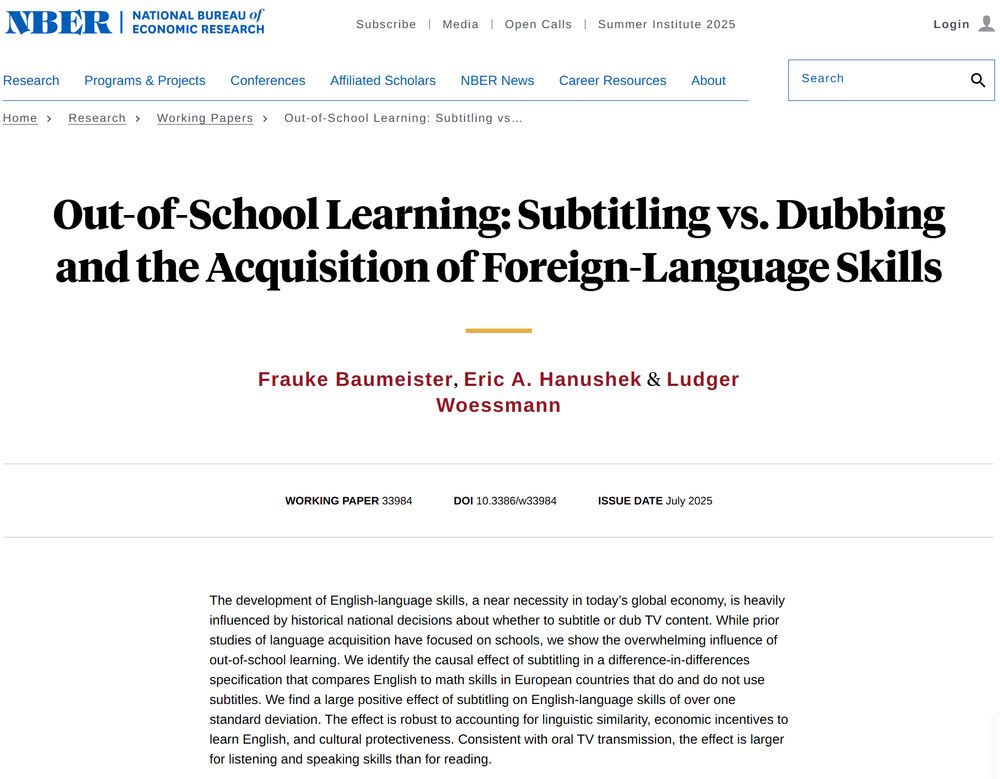
Professor of Economics, University of Munich
Director, ifo Center for the Economics of Education
https://sites.google.com/view/woessmann-e
Ludger Wößmann is a German economist and professor of economics at the Ludwig Maximilian University of Munich (LMU). Moreover, being one of the world's foremost education economists, he is the director of the ifo Center for the Economics of Education at the ifo Institute. Beyond the economics of education, his research interests also include economic growth and economic history. In 2014, Wößmann's empirical research on the effects of education and his corresponding contribution to public debate were awarded the Gossen Prize, followed by the Gustav Stolper Prize in 2017. .. more

➡️ New Working Paper:
Out-of-School Learning: Subtitling vs. Dubbing and the Acquisition of Foreign-Language Skills
w/ F. Baumeister & E. Hanushek
www.nber.org/papers/w33984
A 🧵 1/12
Reposted by Sascha O. Becker, Mirco Tonin, Simon Wiederhold

“Patience and Subnational Differences in Human Capital:
Regional Analysis with Facebook Interests”
w/ Hanushek, @kinnelavinia.bsky.social & Sancassani
💡 Patience accounts for ¾ of regional achievement diffs in Italy, ⅓ US
👉 doi.org/10.1093/ej/u...

Keynotes: @peterbergman.bsky.social (University of Texas at Austin) & Esther Duflo (@mit.edu, University of Zurich) 🫶🏻
Submission deadline May 15, 2026 🚨
#EconSky
Reposted by Ludger Woessmann
CESifo Area Conference on Economics of Education
co-organized w/ Eric Hanushek (Stanford)
🏛️ 11-12 Sept 2026, Munich
🧑🏫 Keynote: John List (Chicago) @johnlist.bsky.social
👉 www.ifo.de/en/cesifo/ev...
⏰ Deadline: 11 May 2026
🖼️ Past programs:
sites.google.com/view/woessma...

Rick and Ludger (woessmann.bsky.social) always put together a very stimulating conference.

CESifo Area Conference on Economics of Education
co-organized w/ Eric Hanushek (Stanford)
🏛️ 11-12 Sept 2026, Munich
🧑🏫 Keynote: John List (Chicago) @johnlist.bsky.social
👉 www.ifo.de/en/cesifo/ev...
⏰ Deadline: 11 May 2026
🖼️ Past programs:
sites.google.com/view/woessma...
Reposted by Ludger Woessmann, Sascha O. Becker


Reposted by Simon Burgess

Here’s a few fond memories of our interactions, for which I’ll always be profoundly grateful:
www.linkedin.com/feed/update/...
R.I.P., dear Jon.
Reposted by Simon Wiederhold
🚀 4th CESifo Junior Workshop on the Economics of Education 🤩
30-31 March 2026, Munich
Keynote: Michela Carlana (Harvard)
PhD students & early postdocs, please apply!
www.ifo.de/en/cesifo/ev...
Deadline: 11 Jan 2026
@caterinapavese.bsky.social @mtotarelli.bsky.social

🚀 4th CESifo Junior Workshop on the Economics of Education 🤩
👇
Reposted by Ludger Woessmann, Simon Wiederhold

Our Workshop on Field Experiments in Economics and Business celebrates its 5th anniversary with FANTASTIC keynote speakers: @peterbergman.bsky.social (UT Austin) and Esther Duflo (MIT) 🎉🙌
📍 Sept 7–8, 2026 at TUM Campus Heilbronn (pre-workshop get-together Sept 6).

